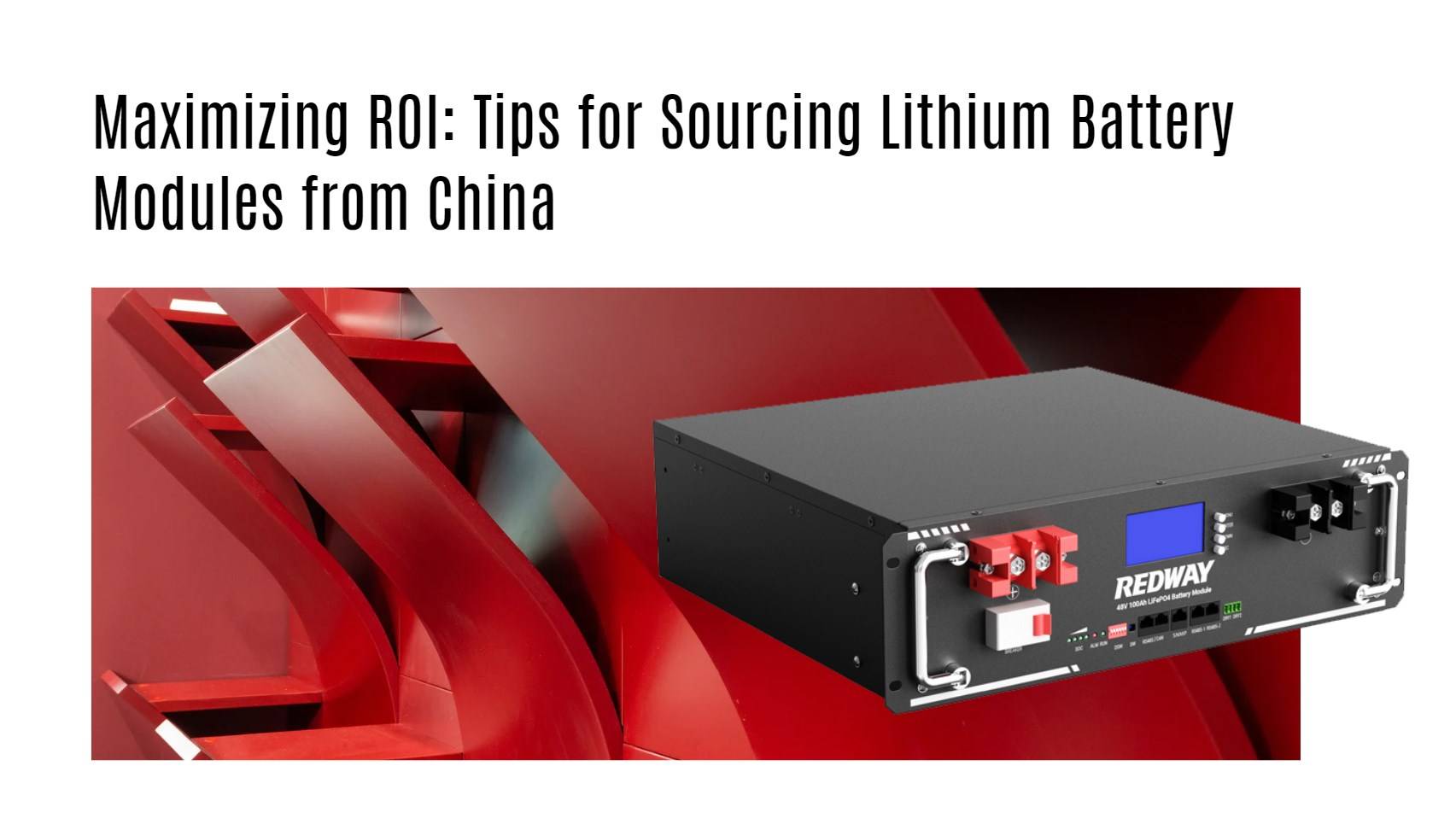In the ever-evolving world of technology, lithium battery modules have emerged as a critical component, powering everything from consumer electronics to electric vehicles. For businesses seeking to optimize their return on investment (ROI) through sourcing, China represents a prime destination due to its expansive manufacturing capabilities and competitive pricing. This comprehensive guide will explore effective strategies to maximize ROI when sourcing lithium battery modules from China, ensuring quality, cost-effectiveness, and efficiency.
Understanding the Market Dynamics
Before diving into sourcing strategies, it’s crucial to grasp the current market dynamics of lithium battery modules in China. The Chinese market is characterized by its high production capacity, innovative advancements, and a broad spectrum of suppliers ranging from established giants to emerging startups. This landscape offers a rich opportunity but also presents challenges, such as quality control and regulatory compliance.
1. Identifying Reliable Suppliers
Choosing the right supplier is pivotal for maximizing ROI. Begin by conducting thorough market research to identify reputable suppliers with a proven track record. Look for manufacturers with certifications such as ISO 9001 and IATF 16949, which indicate adherence to international quality standards. Utilize platforms like Alibaba, Made-in-China, and Global Sources to explore potential suppliers, but verify their credentials through third-party audits or on-site inspections.
2. Evaluating Product Quality
Product quality directly impacts ROI. Assess the technical specifications of lithium battery modules, including capacity, discharge rate, and lifecycle. Request sample products to evaluate their performance against your requirements. Engage with independent testing labs to conduct thorough quality assurance checks and ensure the modules meet safety standards such as UL 2054 or IEC 62133.
3. Negotiating Optimal Pricing
Pricing negotiations play a crucial role in enhancing ROI. Leverage the competitive nature of the Chinese market to negotiate better terms. Understand the cost structure of battery modules, including raw material costs and manufacturing processes. Consider bulk purchasing or long-term agreements to secure volume discounts. Additionally, explore payment terms and shipping options that align with your financial and logistical constraints.
4. Ensuring Compliance with Regulations
Compliance with international and local regulations is essential to avoid costly legal issues and ensure smooth operations. Familiarize yourself with import regulations in your country and ensure that the lithium battery modules comply with standards such as RoHS, CE, and FCC. Work with customs brokers and regulatory experts to navigate the complexities of compliance and reduce the risk of delays or penalties.
5. Managing Supply Chain Logistics
Efficient supply chain management is key to maximizing ROI. Coordinate with your supplier to establish a clear logistics plan that includes shipping schedules, customs clearance, and inventory management. Consider partnering with a reliable logistics provider experienced in handling lithium battery shipments to ensure timely and cost-effective delivery.
6. Building Strong Supplier Relationships
Developing and maintaining robust relationships with suppliers can lead to better terms and improved service. Engage in regular communication with your suppliers to address any concerns and provide feedback. Establish a partnership approach rather than a purely transactional relationship to foster trust and collaboration. This can result in priority support, faster response times, and flexibility in meeting your evolving needs.
7. Monitoring Performance and Continuous Improvement
Once the supply chain is established, continuous monitoring and improvement are vital for sustained ROI. Implement a performance tracking system to evaluate supplier performance, product quality, and delivery reliability. Conduct regular reviews and solicit feedback from your team to identify areas for improvement. Utilize this information to make data-driven decisions and refine your sourcing strategy.
8. Exploring Technological Advancements
Stay abreast of the latest technological advancements in lithium battery modules to gain a competitive edge. Innovations such as improved battery chemistry, enhanced energy density, and advanced management systems can offer significant advantages. Engage with suppliers who are investing in research and development and are at the forefront of technological advancements to ensure you benefit from the latest innovations.
9. Leveraging Local Expertise
Consider working with local consultants or sourcing agents who have in-depth knowledge of the Chinese market. These experts can provide valuable insights into market trends, supplier capabilities, and cultural nuances. They can also assist with negotiations, quality control, and regulatory compliance, ensuring a smoother sourcing process and enhanced ROI.
10. Managing Risks Effectively
Risk management is a crucial aspect of sourcing from China. Identify potential risks such as supply chain disruptions, currency fluctuations, and political instability. Develop a risk mitigation plan that includes contingency strategies, such as diversifying suppliers or securing insurance coverage. Regularly assess and update your risk management strategies to adapt to changing conditions.
Conclusion
Maximizing ROI through sourcing lithium battery modules from China requires a strategic and well-informed approach. By identifying reliable suppliers, evaluating product quality, negotiating optimal pricing, and ensuring regulatory compliance, businesses can enhance their ROI and achieve long-term success. Effective supply chain management, strong supplier relationships, and a commitment to continuous improvement further contribute to a robust sourcing strategy. Stay informed about technological advancements and leverage local expertise to stay ahead in a competitive market. With careful planning and execution, businesses can unlock significant value and optimize their investment in lithium battery modules.



